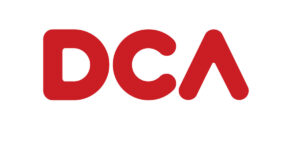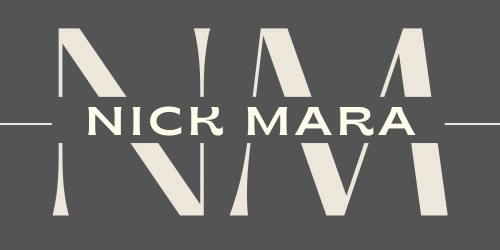This section covers my secondary and further education. If you are interested in my university projects and modules, please use the navigation bar below to proceed to the relevant section.
Secondary Education

2014-2021
A-Levels
Mathematics
Physics
Economics
Further Mathematics
A*
A*
A
C
GCSEs
Computer Science, English Language, English Literature
Mathematics, Physics, Economics, History
Chemistry, Biology
Spanish
A*
9
8
7
2019
Further Education

September 2021 – June 2025
MEng Mechanical Engineering
Second-Class Honours Upper Division (2:1)
University Application Process
My university application process was very successful, being accepted into all five of my choices: Durham, Exeter, Warwick, Bristol and Loughborough. It was a tough choice, but the sporting prowess, top-of-the-line facilities, and welcoming atmosphere all spoke to me and I decided to accept the offer at Loughborough. Why did I choose mechanical engineering? Not knowing what I wanted to do at 17 years old (who does really?) I pursued what I was good at and enjoyed – maths, physics, and problem solving. I new it was a highly regarded degree with promising career prospects. It would allow me to pursue a quantitative discipline whilst also learning valuable transferrable skills, so I believed it was a promising path to explore…
Industry Projects
Total Product Design – adidas

For my master’s project I was lucky enough to work alongside and tackle a challenging issue set by adidas. Working in multidisciplinary engineering group, consisting of three mechanical engineers (myself included), one product design engineer, and a sports technology engineer, was an incredibly enjoyable experience and we were able to take advantage of this by utilising our different skillsets.
The premise of the project:
We were tasked by adidas with finding a way to predict wet cling in football jerseys. During the Men’s 2024 Euros, many of the adidas jerseys were subject to negative publicity for their ‘wet cling’ look, brought about by the hot and humid conditions. Typically, this wet cling look is the result of excessive moisture absorption by the jersey, due to sweat or rain, and usually has an undesirable look viewers subconsciously associate with poor quality. This is evidenced through the termination of Castore’s contract as Aston Villa’s kit supplier in 2023. As a result, adidas are keen to find a way to remedy this ahead of the 2026 Men’s World Cup, which will be played across Canada, the United States, and Mexico where conditions will likely be very hot and humid. Our job was to find a way to predict this phenomena so that adidas can implement this into their garment development process to reduce the risk of the ‘wet cling’ sensation in their jerseys.
Industry based Project – Ping

As part of the second year students are grouped together and allocated to an industry partner, who gives them a challenging and current problem to solve, often requiring an innovative solution. Additionally, groups are assigned a fourth year master’s student for the first semester, who guides the group through the initial stages of the project. Luckily enough, I was partnered with the well-known golf apparel company, Ping, who have an office and testing lab on the Loughborough Campus.
My group were tasked with creating a ‘high golf tee’ for wheelchair users, so that they can hit the ball in a baseball style. This was an interesting problem to solve since such a device makes golf much more accessible, and required a lot of out-of-the-box thinking.
Looking back on my degree, I can point to this module as being one of the greatest learning experiences: learning project management, concept generation and selection, formal report writing and solution presentation first-hand.
To summarise the process of the project: we conducted initial research, then created a Product Design Specification (PDS) which we used to aid our ideation processes. From this we generated many concepts, using a Pugh matrix to select certain concepts to take forward, developing these further, then completing another round of selection with a Pugh matrix. This brought us to a final proposal. We outlined these steps and our proposal in a written formal interim report, which was an invaluable skill to learn that I have used throughout my degree. Following this, we presented our idea to Ping, which they approved. From here we produced CAD models of the proposal, which was then produced in the workshop and we assembled it to form our prototype. We tested it in the Ping lab on campus to validate its functions and also to identify areas for improvement. Finally, we submitted a long written report, outlining our steps from beginning to end and presented our progress and prototype live to Ping and the other Ping groups at the end of the project.
Project Leadership – DCA Design

As part of the Project Leadership module, I was now the master’s student assigned to guide a group of second year students through their Industry Based Project. Having been in their position two years prior, I knew exactly how to approach and manage such a project. The job of my co-mentor and I was to pass this wisdom onto our mentees during the first semester, so that by the second semester they were able to complete the project on their own.
This module was an incredible learning experience, being put in a position of authority and tasked with walking inexperienced students through the intricacies of a technical engineering project put my awareness and leadership skills to the test. I certainly learned a lot through this experience and greatly developed my confidence in leading others.
This was fantastic hands-on experience with project and people management, having to adapt leadership styles throughout the project and navigate the co-mentor dynamic was interesting. At the start I had to be decisive and very involved in the group, often dictating the next course of action whilst giving the mentees options to choose from and the space to voice their opinions. This was necessary at the very beginning stages of the project, going through the admin stage, i.e. setting up shared folders, meeting times, meeting protocols (minutes, chairperson), creating a project plan. Using our authority to initiate the structure of the project was necessary since the mentees were inexperienced. As the project continued, my co-mentor and I became increasingly more hands-off or laissez-faire as the mentees gained confidence and a sense of direction within the project.
Another aspect of project management that I gained valuable exposure to is navigating around the group members’ personalities. Out of the five members, two were more outgoing and contributed more to discussions and driving progress. I had to take each member’s personal tendencies into account, for example, finding ways to get the quieter members to speak through asking directly for their opinions and encouraging open discussion, as well as rotating who was chairing the meeting. If some members were not putting in enough work we had to find ways to fix this without humiliating them in front of the group. Another important aspect was managing the co-mentor dynamic. I, being more assertive than my co-mentor, made a conscious effort to not overshadow her and to present ourselves as a united leadership team. When giving the mentees instructions or directions I would finish by asking for her opinion, and made sure when she was speaking I listened. We also had frequent discussions outside of our group meetings to decide on the direction of the project so that we were always on the same page during group meetings. After all, there’s not much worse for a group if their leaders are visibly disagreeing or clashing personally.
Other Projects
Computational Fluid Dynamics
– Modelling Cricket Ball Swing
During my third year I took the first CFD module, which introduced the fundamental mathematics behind CFD and how to use Siemens Star-CCM, which included a group modelling project. However, the real challenge came in my master’s year in the second CFD module.
With a variety of projects on offer, I chose to be part of the group tasked with investigating the factors affecting cricket ball swing. Firstly, we began by reviewing literature on the matter, with papers published from other universities disclosing findings from physically testing a cricket ball in a wind tunnel. The dimensions from these experiments were used to build our model in Star-CCM, and the papers’ results could be used for validation against our model.
Computer Aided Design,
Manufacture and Test (CADMAT)
– Bracket Design
CADMAT description
Other Modules
Mathematics for Mechanical Engineering
This module taught advanced mathematics which underpinned engineering theory. Maths has always been a strong interest of mine and I often enjoy watching YouTube videos covering complicated maths topics, so I found this module extremely interesting. It covered advanced topics such as Fourier Series, Laplace Transforms, Probability Theory, complex numbers, partial calculus.
Engineering Management, Finance, Law and Quality
This module taught key management, finance, law, and quality control principles. The finance section was my favourite – I gained an understanding of the three financial statements (the balance sheet, the income statement, and the cash flow statement). This module was great as it covered topics outside of engineering, and was vastly different to most of the other quantitative modules.
Engineering Computation
Filler
Heat Transfer
Filler
Mechanics of Materials
Filler
Finance
Filler
